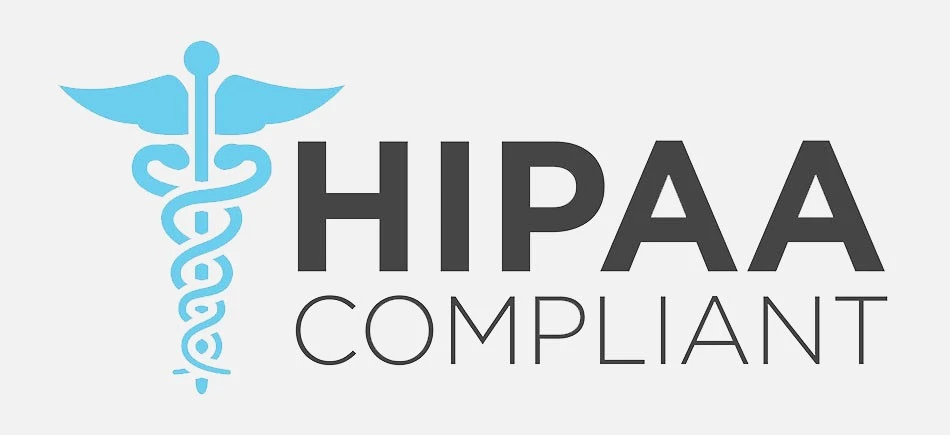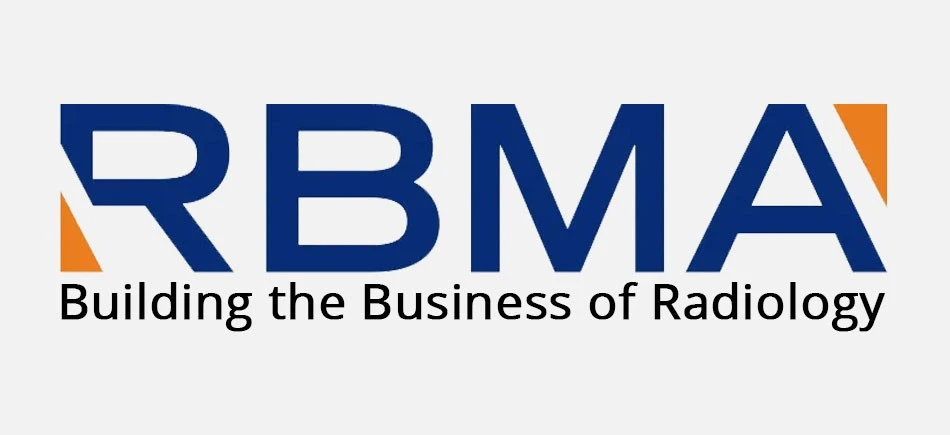-
MEDICAL BILLING
- MEDICAL BILLING
- Physician Billing Services
- Patient Demographic Entry
- Physical Therapy Billing Services
- Urgent Care Billing Services
- Sleep Medicine Billing Services
- Indexing Medical Records
- Enrollment and Credentialing Services
- Physician Credentialing Services
- EMS Billing Services
- DME Billing Services
- ASC Billing Services
- Charge Entry Services
- Emergency Medicine Billing Services
- Orthopedic Medical Billing Services
- Workers Compensation Billing Services
- Medical Document Scanning Services
- EHR Chart Building Services
- FQHC Medical Billing Services
- Patient Advice and Liaison Services
- Managed Care Contracting Services
- Billing Services using Intelligent Medical Software
- Medical Record Abstraction Services
- Medical Billing Specialties
- Hospital Billing
- Hospice Billing Services
- Chiropractic Billing
- Pathology Billing Services
- Pediatric Medical Billing Services
- Gynecology Medical Billing
-
View All
- Ambulance Billing Services
- Radiology Medical Billing Services
- Cardiology Medical Billing Services
- Neurology Medical Billing Services
- Mental Health Billing Services
- Family Practice Billing Services
- Internal Medicine Billing Services
- Plastic Surgery Billing Services
- Otolaryngology Billing Services
- Occupational Health Billing Services
- Surgery Center Billing Services
- Urology Billing Services
- Dental Billing Services
- Anesthesia Billing Services
- Pain Management Billing Services
- Gastroenterology Billing Services
- Podiatry Billing Services
- Personal Injury Billing Services
- Medical Record Retrieval Services
- Back-office Support Services for Medical Billing Companies
- MEDICAL CODING
-
REVENUE CYCLE MANAGEMENT
- REVENUE CYCLE MANAGEMENT
- Healthcare Due Diligence Services
- MIPS Quality Reporting Services
- Medical Case Management Services
- Healthcare Accounts Receivable Services
- Accounts Receivable Analysis
- Accounts Receivable Follow-up
- AR Calling Services
- Denial Management Services
- Insurance Eligibility Verification
- Payment Posting
- PPO Health Insurance Claims Repricing
- Revenue Improvement Services
- Health Insurance Recovery Services
- Accounts Receivable Conversion Services
- Payment Accuracy Services
- Health Risk Assessment Services
- Dental Revenue Cycle Management Services
- Healthcare Revenue Integrity Services
- Patient Financial Clearance Services
- Provider Lifecycle Management (PLM) Services
- Healthcare Collection Services
- Medical Claims Processing
- Medicare Reimbursement Services
- Medical Claims and Encounter Processing
- Healthcare Payer Services
-
MEDICAL TRANSCRIPTION
- MEDICAL TRANSCRIPTION
- Physician Assistant Virtual Scribing
- Genetics Transcription
- Ophthalmology Transcription
- Discharge Summary Transcription
- Emergency Room Transcription
- HL7 Transcription
- Neurology Transcription
- Psychiatry Transcription
- Operative Reports Transcription Services
- Pathology Transcription
- Radiology Transcription
- ENT Transcription Services
- Medical Report Transcription Services
- Cardiology Transcription Services
- EMR Transcription Services
- Deaf Transcription Services
- Hospital Transcription Services
- Oncology Transcription Services
- Orthopedics Transcription Services
- Dermatology Transcription Services
- Anesthesiology Transcription Services
- Urology Transcription Services
- Gastroenterology Transcription Services
- Pain Management Transcription Services
- Internal Medicine Transcription Services
- Physical Therapy Transcription Services
- Chiropractic Transcription Services
- Rehabilitation Transcription Services
- Virtual Medical Scribing Services
- Follow-up Notes Transcription Services
- History and Physical Notes Transcription Services
- BSL Interpreting Services
- Progress Notes Transcription Services
- Surgery Transcription Services
-
TELERADIOLOGY
- TELERADIOLOGY
- eRAD PACS System for Teleradiology
- Radiology Information Systems (RIS)
- Nighthawk Teleradiology
- 3D Image Processing
- Medical Imaging
- Final Teleradiology Reads and Reporting
- CT Interpretation Services
- Emergency Radiology Services
- Preliminary Teleradiology Reporting Services
- On-site Radiology and Interpretation
- Neurology PET/CT reporting services
- PET/CT Reporting Services
- Cardiac PET/CT Reporting Services
- Dental X-Ray Imaging Services
- STAT Reporting and Critical Results Reporting
- MRI Interpretation Services
- Bone Density Scan Services
- Thoracic Imaging Services
-
EMR SERVICES
- EMR SERVICES
- Pediatrics EMR Services
- Endocrinology EMR Services
- EMR Software Development
- Dermatology EMR Services
- Sleep Medicine EMR Services
- Oncology EMR Services
- Cardiology EMR Services
- Physical Medicine EMR Services
- OB/GYN EMR Services
- Orthopedics EMR Services
- Otolaryngology EMR Services
- Urgent Care EHR Services
- General Surgery EMR Services
- Neurology EMR Services
- Ophthalmology EMR Services
- Pulmonary EMR Services
- Allergy and Immunology EMR Services
- Pain Management EMR Services
- Internal Medicine EMR Services
- Rehabilitative Medicine EMR Services
- Speech Therapy EMR Services
- Primary Care EMR Services
- Rheumatology EMR Services
- Psychiatry EMR Services
- Behavioral Health EHR Services
- Vascular Surgery EMR Services
- Gastroenterology EMR Services
- Hand surgery EMR Services
- Infectious Disease EMR Services
- House Call EMR Services
- Urology EMR Services
- Medical Record Summary Services
- Office Ally EHR Services
- Nephrology EMR Services
- Ambulatory Surgery EMR Services
- EMR Integration Services
- Virtual EMR Services
- Precharting Services
- EMR Data Migration Services
- EMR Data Entry Services
- CLAIMS ADJUDICATION SERVICES
-
MEDICAL ANIMATION
- MEDICAL ANIMATION
- 2D Medical Animation Services
- 3D Medical Animation Services
- Surgery Animation Services
- Scientific Animation Services
- Medical Illustration Services
- 3D Medical Illustration Services
- Biomedical Illustration Services
- Anatomy Illustration Services
- Medical Device Animation Services
- Spine Animation Services
- Molecular Animation Services
- Pharmaceutical Animation Services
- Orthopedic Animation Services
- Medical Device Prototyping Services
- PHARMACY BUSINESS SERVICES
-
HEALTHCARE MANAGEMENT
- HEALTHCARE MANAGEMENT
- Healthcare Back-office Support services for Urgent Care Centers
- Healthcare Back-office Support Services for Hospitals
- Healthcare Consulting Services
- Healthcare Documentation Services
- Chart Documentation Services
- Health Information Management Services
- Pharmaceutical Outsourcing
- Clinical Services
- Healthcare Analytics
- Medical Call Center Services
- Back-office Support Services for Physicians
- Claims Processing Software Development
- EDI Integration
- Health Information Technology
- Medical Billing Software Support
- Population Health Analytics Services
- Patient Interaction Services
- Care Management Services
- Clinical Documentation Improvement Services
- Patient Engagement Services
- Medical Practice Transformation Services
- HEDIS Measurement Services
- Healthcare Surveys Services
- Patient Satisfaction Survey Services
- Clinical Documentation Integrity Services
- Remote Patient Monitoring Services
- Telemedicine Services
- Clinical Decision Support Services
- Hospital Capacity Management Services
- Clinical Research Organization Services
- Risk-based Quality Management Services
- Patient Onboarding Services
- Medical Peer Review Services
- Telephone Triage Services
- Clinical Trials Regulatory Services
- Digital Health Services
- Care Coordination Services
- Decentralized Clinical Trials Services
- Telehealth Services
- Patient Adherence Services
- Medical Record Review Services
- Telemedicine Appointment Services
- Healthcare Data Management Services
- Prior Authorization Services
- Preventive Care Services
- Healthcare Interoperability Services
- Medical Data Entry Services
- Virtual Healthcare BPO Services
- Healthcare Provider Data Management Services
- Dental Insurance Verification Services
- Medical Insurance Claims Processing
- EOB Processing Services
- Healthcare Utilization Management Services
- Practice Management Services
- Statistical Programming Services
- Medical Presentation Services
-
HEALTHCARE SOFTWARE
- HEALTHCARE SOFTWARE
- Billing Services Using ChiroTouch Software
- Billing Services Using Medisoft Software
- Billing Services Using eClinicalWorks Software
- Billing Services Using AdvancedMD Software
- Billing Services Using Kareo Software
- Billing Services Using Nextech Software
- Billing Services Using Athena Software
- Billing Services Using Lytec Billing Software
- ARTICLES
- Medical Billing
Medical Billing: We offer specialized healthcare BPO. Get more information on our medical billing services and sub-services.
- Physician Billing Services
- Patient Demographic Entry
- Physical Therapy Billing Services
- Urgent Care Billing Services
- Sleep Medicine Billing Services
- Indexing Medical Records
- Enrollment and Credentialing Services
- Physician Credentialing Services
- EMS Billing Services
- DME Billing Services
- ASC Billing Services
- Charge Entry Services
- Emergency Medicine Billing Services
- Orthopedic Medical Billing Services
- Workers Compensation Billing Services
- Medical Document Scanning Services
- EHR Chart Building Services
- FQHC Medical Billing Services
- Patient Advice and Liaison Services
- Managed Care Contracting Services
- Billing Services using Intelligent Medical Software
- Medical Record Abstraction Services
- Medical Billing Specialties
- Hospital Billing
- Hospice Billing Services
- Chiropractic Billing
- Pathology Billing Services
- Pediatric Medical Billing Services
- Ambulance Billing Services
- Radiology Medical Billing Services
- Cardiology Medical Billing Services
- Neurology Medical Billing Services
- Mental Health Billing Services
- Gynecology Medical Billing
- Family Practice Billing Services
- Internal Medicine Billing Services
- Plastic Surgery Billing Services
- Otolaryngology Billing Services
- Occupational Health Billing Services
- Surgery Center Billing Services
- Urology Billing Services
- Dental Billing Services
- Anesthesia Billing Services
- Pain Management Billing Services
- Gastroenterology Billing Services
- Podiatry Billing Services
- Personal Injury Billing Services
- Medical Record Retrieval Services
- Services for Medical Billing Companies
- Medical Coding
Medical Coding: We offer specialized healthcare BPO. Get more information on our medical coding services and sub-services.
- Revenue Cycle Management
Revenue Cycle Management: We offer specialized healthcare BPO. Get more information on our revenue cycle management services and sub-services.
- Healthcare Due Diligence Services
- MIPS Quality Reporting Services
- Medical Case Management Services
- Medical Accounts Receivable Services
- Accounts Receivable Analysis
- Accounts Receivable Follow-up
- AR Calling Services
- Denial Management Services
- Insurance Eligibility Verification
- Payment Posting Services
- PPO Health Insurance Claims Repricing
- Revenue Improvement Services
- Health Insurance Recovery Services
- Accounts Receivable Conversion Services
- Payment Accuracy Services
- Health Risk Assessment Services
- Dental Revenue Cycle Management Services
- Healthcare Revenue Integrity Services
- Patient Financial Clearance Services
- Provider Lifecycle Management (PLM) Services
- Healthcare Collection Services
- Medical Claims Processing
- Medicare Reimbursement Services
- Medical Claims and Encounter Processing
- Healthcare Payer Services
- Medical Transcription
Medical Transcription: We offer specialized healthcare BPO. Get more information on our medical transcription services and sub-services.
- Physician Assistant Virtual Scribing
- Genetics Transcription Services
- Ophthalmology Transcription
- Discharge Summary Transcription
- Emergency Room Transcription
- HL7 Transcription
- Neurology Transcription
- Psychiatry Transcription
- Operative Reports Transcription Services
- Pathology Transcription
- Radiology Transcription
- ENT Transcription Services
- Medical Report Transcription Services
- Cardiology Transcription Services
- EMR Transcription Services
- Deaf Transcription Services
- Hospital Transcription Services
- Oncology Transcription Services
- Orthopedics Transcription Services
- Dermatology Transcription Services
- Anesthesiology Transcription Services
- Urology Transcription Services
- Gastroenterology Transcription Services
- Pain Management Transcription Services
- Internal Medicine Transcription Services
- Physical Therapy Transcription Services
- Chiropractic Transcription Services
- Rehabilitation Transcription Services
- Virtual Medical Scribing Services
- Follow-up Notes Transcription Services
- History and Physical Notes Transcription Services
- BSL Interpreting Services
- Progress Notes Transcription Services
- Surgery Transcription Services
- Teleradiology
Teleradiology: We offer specialized healthcare BPO. Get more information on our teleradiology services and sub-services.
- eRAD PACS System for Teleradiology
- Radiology Information System Services
- Nighthawk Teleradiology
- 3D Image Processing
- Medical Imaging
- Final Teleradiology Reads and Reporting
- CT Interpretation Services
- Emergency Radiology Services
- Preliminary Teleradiology Reporting Services
- On-site Radiology and Interpretation
- Neurology PET/CT reporting services
- PET/CT Reporting Services
- Cardiac PET/CT Reporting Services
- Dental X-Ray Imaging Services
- STAT Reporting and Critical Results Reporting
- MRI Interpretation Services
- Bone Density Scan Services
- Thoracic Imaging Services
- EMR
EMR Services: We offer specialized healthcare BPO. Get more information on our EMR Services and sub-services.
- Pediatrics EMR Services
- Endocrinology EMR Services
- EMR Software Development
- Dermatology EMR Services
- Sleep Medicine EMR Services
- Oncology EMR Services
- Cardiology EMR Services
- Physical Medicine EMR Services
- OB/GYN EMR Services
- Orthopedics EMR Services
- Otolaryngology EMR Services
- Urgent Care EHR Services
- General Surgery EMR Services
- Neurology EMR Services
- Ophthalmology EMR Services
- Pulmonary EMR Services
- Allergy and Immunology EMR Services
- Pain Management EMR Services
- Internal Medicine EMR Services
- Rehabilitative Medicine EMR Services
- Speech Therapy EMR Services
- Primary Care EMR Services
- Rheumatology EMR Services
- Psychiatry EMR Services
- Behavioral Health EHR Services
- Vascular Surgery EMR Services
- Gastroenterology EMR Services
- Hand surgery EMR Services
- Infectious Disease EMR Services
- House Call EMR Services
- Urology EMR Services
- Medical Record Summary Services
- Office Ally EHR Services
- Nephrology EMR Services
- Ambulatory Surgery EMR Services
- EMR Integration Services
- Virtual EMR Services
- Precharting Services
- EMR Data Migration Services
- EMR Data Entry Services
- Claims Adjudication
Claims Adjudication: We offer specialized healthcare BPO. Get more information on our claims adjudication services and sub-services.
- Medical Animation
Medical Animation: We offer specialized healthcare BPO. Get more information on our medical animation Services and sub-services.
- 2D Medical Animation Services
- 3D Medical Animation Services
- Surgery Animation Services
- Scientific Animation Services
- Medical Illustration Services
- 3D Medical Illustration Services
- Biomedical Illustration Services
- Anatomy Illustration Services
- Medical Device Animation Services
- Spine Animation Services
- Molecular Animation Services
- Pharmaceutical Animation Services
- Orthopedic Animation Services
- Medical Device Prototyping Services
- Pharmacy Business
Pharmacy Business: We offer specialized healthcare BPO. Get more information on our Pharmacy Business services and sub-services.
- Healthcare Management
Healthcare Management: We offer specialized healthcare BPO. Get more information on our healthcare management services and sub-services.
- Healthcare Back-office Support services for Urgent Care Centers
- Healthcare Back-office Support Services for Hospitals
- Healthcare Consulting Services
- Healthcare Documentation Services
- Chart Documentation Services
- Health Information Management
- Pharmaceutical Outsourcing
- Clinical Services
- Healthcare Analytics
- Medical Call Center Services
- Back-office Support Services for Physicians
- Claims Processing Software Development
- EDI Integration
- Health Information Technology
- Medical Billing Software Support
- Population Health Analytics Services
- Patient Interaction Services
- Care Management Services
- Clinical Documentation Improvement Services
- Patient Engagement Services
- Medical Practice Transformation Services
- HEDIS Measurement Services
- Healthcare Surveys Services
- Patient Satisfaction Survey Services
- Clinical Documentation Integrity Services
- Remote Patient Monitoring Services
- Telemedicine Services
- Clinical Decision Support Services
- Hospital Capacity Management Services
- Clinical Research Organization Services
- Risk-based Quality Management Services
- Patient Onboarding Services
- Medical Peer Review Services
- Telephone Triage Services
- Clinical Trials Regulatory Services
- Digital Health Services
- Care Coordination Services
- Decentralized Clinical Trials Services
- Online Telehealth Services
- Patient Adherence Services
- Medical Record Review Services
- Telemedicine Appointment Services
- Healthcare Data Management Services
- Prior Authorization Services
- Preventive Care Services
- Healthcare Interoperability Services
- Medical Data Entry Services
- Virtual Healthcare BPO Services
- Healthcare Provider Data Management Services
- Dental Insurance Verification Services
- Medical Insurance Claims Processing
- EOB Processing Services
- Healthcare Utilization Management Services
- Practice Management Services
- Statistical Programming Services
- Medical Presentation Services
- Healthcare Software
Healthcare Software: We offer specialized healthcare BPO. Get more information on our Healthcare Software.
- Billing Services Using ChiroTouch Software
- Billing Services Using Medisoft Software
- Billing Services Using eClinicalWorks Software
- Billing Services Using AdvancedMD Software
- Billing Services Using Kareo Software
- Billing Services Using Nextech Software
- Billing Services Using Athena Software
- Billing Services Using Lytec Billing Software
- Articles
Healthcare BPO Articles: Our healthcare BPO resources are comprehensive and well-researched. Check out our healthcare BPO articles.
- Medical Billing and Coding Articles
- Top 8 Medical Billing and Coding Errors You Should Avoid
- A Complete Guide to Key Differences Between ICD-10 and DSM-5
- 15 Ways Medical Billing Companies Can Increase Profitability in 2019
- 6 Physician Billing Trends You Can’t Afford to Ignore Any Longer
- 8 Denial Management Best Practices for Hospitals
- What is ICD-11 - All You Need to Know
- Advantage of ERAs and EFTs in Payment Posting For Medical Billing
- How Can Medical Billing and Coding help you Increase Cash Flow?
- ICD-10: Dos and Don'ts
- 6 Effective Ways to Collect Patient Balances
- HCPCS Codes
- FAQs on Outsourcing Medical Billing
- Outsourcing Medical Coding
- Outsourcing AR calling
- Medical Billing Training
- FAQs on Outsourcing Medical Coding
- General Articles
- 8 Strategies to Enhance Revenue Cycle Management for Your Healthcare Practices
- The Impact and Implications of ICD-10-CM 2024 Revisions
- A Strategic Blueprint to Surpass the Top 5 Challenges in Healthcare Supply Chain
- A Strategic Blueprint to Surpass the Top 5 Challenges in Healthcare Supply Chain
- Embracing the Future of Healthcare through Virtual and Augmented Reality
- Healthcare BPO – The Strategic Impact of Medical Transcription Services on Healthcare Operations.
- Healthcare BPO – How to Grow Your Healthcare Profits with Revenue Cycle Management?
- Healthcare BPO – How Industry Players Can Make the Most of the Opportunity
- Things to Keep in Mind While Choosing the Right Healthcare Support Provider
- 10 Applications of Virtual Reality in Medicine
- Doctors are Being Forced into Medical Bill Collection - How Far Should They Go?
- Top 8 Practical Uses of Virtual Reality in Healthcare to Watch Out for in 2018
- Healthcare IT Outsourcing Market: What to Expect in 2018
- 10 Ways Virtual Reality is Transforming Healthcare
- Machine Learning and Big Data Will Change Healthcare Forever
- How Healthcare Data Analytics Is Changing the Face of The Healthcare Industry?
- Healthcare Fraud and Abuse - A Grave Problem that Needs Attention
- Ways in Which Healthcare Will Change in 2018 - Top 7 Trends and Predictions
- Reasons and Tips to Improve Healthcare Claims Denial Management
- 8 Game Changing Trends for the Healthcare Industry in 2016
- Hospital Revenue Cycle Management - Top 10 Challenges and Solutions
- Top 8 Pharmaceutical Outsourcing Trends
- Why Outsource Healthcare BPO?
- O2I's Healthcare Process
- HMO Plans
- HIPAA Compliance FAQs
- HIPAA Compliance in Healthcare BPOs
- Remote Medical Services
- Outsourcing Medical Billing Services - Evaluating its Impact on Your Practice
8 Denial Management Best Practices for Hospitals

Did you know that a medical organization loses 7-10% of its revenue on an average? Also, are you aware that if you adhere to the best denial management practices, you can easily avoid the claim denials. The first approach is to directly collect the arrears from your patient. But, the success rate here is quite low. Another way is to focus on your denial management tasks. An effective denial management will boost your facility' cash flow. And by reliable, thorough and prompt payment from payers, you can focus 100% on your patients.
Unfortunately, the insurance claims are not followed up meticulously which results in the loss of revenue. Thus, you should prioritize revamping your facility's insurance claims denial management process. To make things easy, we have listed some of the denial management best practices, which will make sure a reduction in insurance claim denials.
8 Best Practices for Claims Denial Management
Claim denials directly affect your organization's revenue. And in the long run, it will upset your other administrative task. To make sure insurance claims denial cut to least, it is important to follow some of the best practices for claims denial management. We have collated a few denial management best practices for hospitals below.
1. Know the Stats
Before you dive in to tackle the claims denial, it is important to know the initial
denial rate, dollar rate, and the claims rate. This will help you understand the reasons for the high denial rate in your organization.
This will also open up new opportunities to improve the processes and cut the problems.
2. Keep the Process Organized
Losing track of the denied claims will lead to diminishing your healthcare organization's
revenue. If the number of denials keeps on increasing, it will lead you to some serious administrative problems. Thus, an organized denial management process
can help you keep track of all the claims. You can leverage HIPAA credited tools and technologies to keep track on the submitted claims.
3. Identify Denial Trends
Quantify and categorize the denials by tracking, evaluating and recording the
denial trends. You can take the help from your physicians and payers. You can also leverage the expertise of your outsourcing partner.
They will help reduce the claim denials and improve compliance of your medical facility. Put more emphasis on data and analytics. If you can
collate and find the reasons for the claim denials, you can identify the core issue and rectify it.
4. Complete Denials Quickly
Whenever you witness a claim denial, you should follow a validated process
to get that denial corrected, preferably within a week. This is possible using an established workflow which will track the claims as they
enter and leave your system.
5. Create a Team
Create a team to analyze and focus on denial trends. Find out the resources that can
mete out the denials. Also, leverage their expertise to put in place solutions and track and report the development.
All departments must be involved and the meet regularly to discuss important issues, key reasons for denials, and how to permanently correct
them.This will set up claims denial management benchmark, reduce the backlogs, and help recognize the root causes of denials.
6. Keep the Payers Informed
The resolution of the claim denials issues can also benefit the payers.
A collaboration between the payers and your healthcare organization can help in addressing the issues in a more efficient manner. This will
also help in achieving highest system efficiency within a short time.
7. Choose Quality over Quantity
Everybody is looking to work on as many claims as possible. However,
the best way to manage the entire process with a limited number of resources and time is to follow up with the claims which are already
addressed. This will help in getting more quality claims rather than several claims which do not yield anything.
8. Track the Progress
This is one of the most important practices while dealing with denial management.
It helps your organization to know which areas are doing well and which needs improvement. Both the wins and losses must be documented for
future analysis and improving system's efficiency. This will help you work on the improper coding and determine whether a service was covered
in the claim or not.
Automating denial management processes also give you plenty of time to rework on the rejections.
Choose Us for Efficient Denial Management Services
Outsource2india has been a leading provider of denial management services in India and a series of other medical billing and coding services to global clients. We have a team of highly skilled and experienced medical billing and coding experts. They understand the importance of lost claims and how it affects your business. They will help you in automating your denial management processes.
By outsourcing denial management services to us, your claims denial rate will reduce considerably. We use some of the latest and best denial management tools and technologies to ensure delivery of the best quality services.
If you are looking for an efficient, quick, and cost-effective denial management service provider, then you have come to the right place. Get in touch with us today!
Get a FREE QUOTE!
Decide in 24 hours whether outsourcing will work for you.
Have specific requirements? Email us at: ![]()
- 4,968,000 Transcription lines
- 504,000 Payment postings
- 450,000 Charge entries
- 288,000 Demo entries
Get a FREE QUOTE!
Decide in 24 hours whether outsourcing will work for you.

Please wait...
Have specific requirements? Email us at: ![]()
Key Differentiators
Software At O2I Healthcare
Specialties HIPAA Compliance HIPAA 5010
Standards Compliance CPT Coding
Compliance Healthcare
Processes Medical
Billing Process Charge
Entry Process Medical
Coding Process Medical
Claims Process FAQs on Medical Accounts
Receivable Services FAQs on Outsourcing
Claims Adjudication Services Medical
Transcription Process HL7 ICD-10 Compliance
-
 Outsourcing Medical Billing Services - Evaluating its Impact on Your Practice
Outsourcing Medical Billing Services - Evaluating its Impact on Your Practice
-
 US-based Healthcare Research & Consulting Firm Approached O2I For Medical Transcription Services
US-based Healthcare Research & Consulting Firm Approached O2I For Medical Transcription Services
-
 Outsource2india Provided Patient Onboarding Services to a Leading Healthcare Company
Outsource2india Provided Patient Onboarding Services to a Leading Healthcare Company
-
 Outsource2india Assisted a Florida-based Medical Billing Company with ICD-10 Implementation
Outsource2india Assisted a Florida-based Medical Billing Company with ICD-10 Implementation
-
 Caribbean Radiologists Got STAT Reports Automation Services from Outsource2india
Caribbean Radiologists Got STAT Reports Automation Services from Outsource2india
-
 Outsource2india Helped a Medical Imaging Firm with Quick Teleradiology Services
Outsource2india Helped a Medical Imaging Firm with Quick Teleradiology Services
















 \
\






